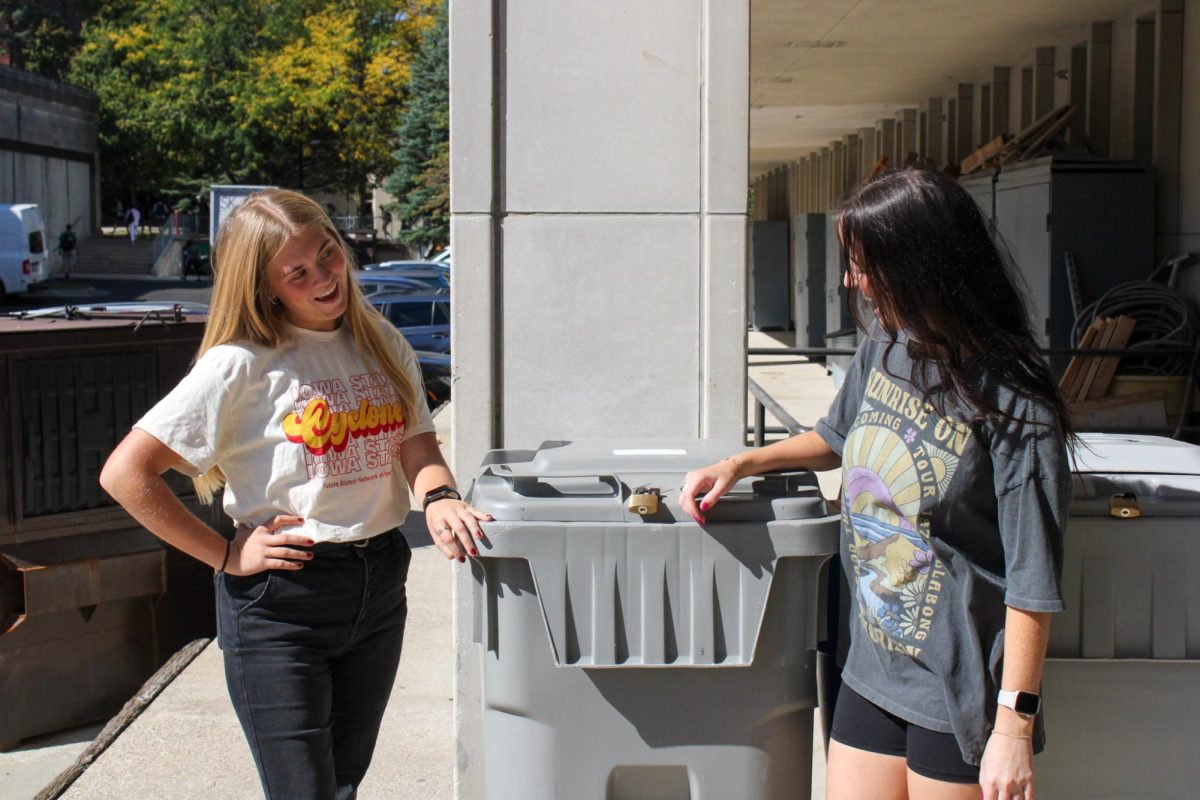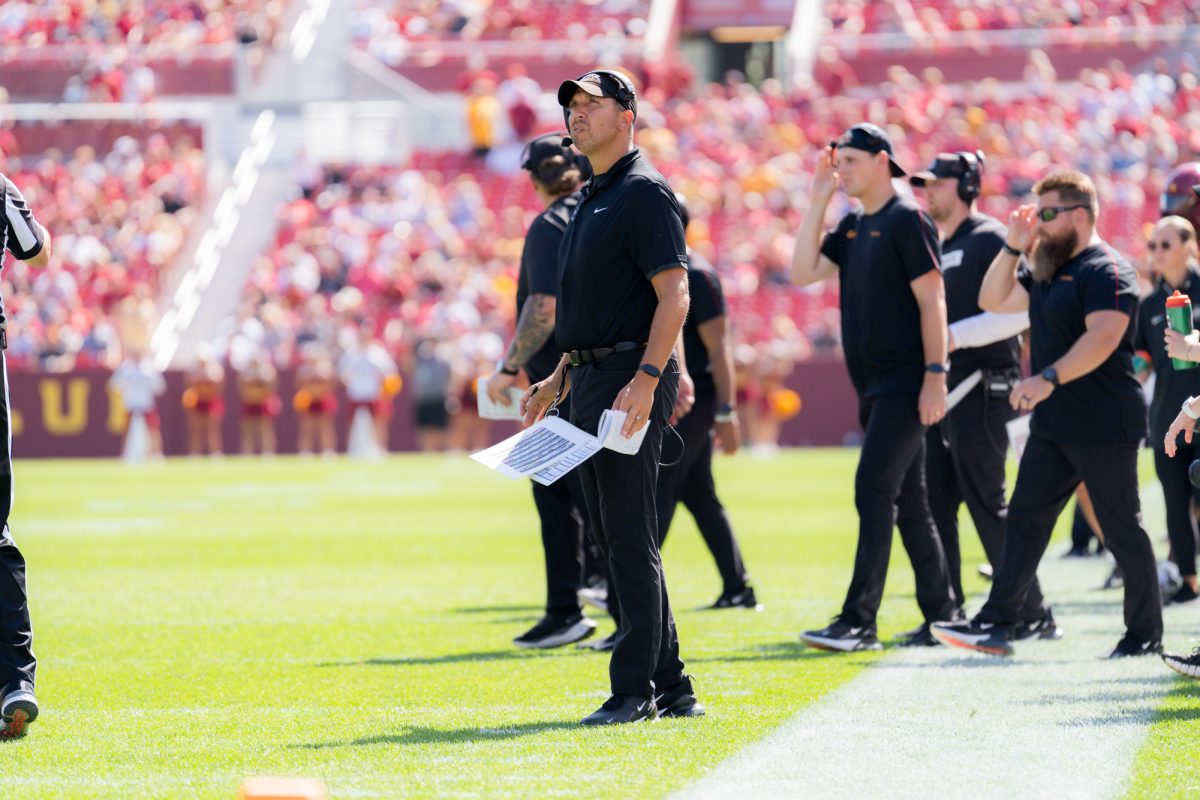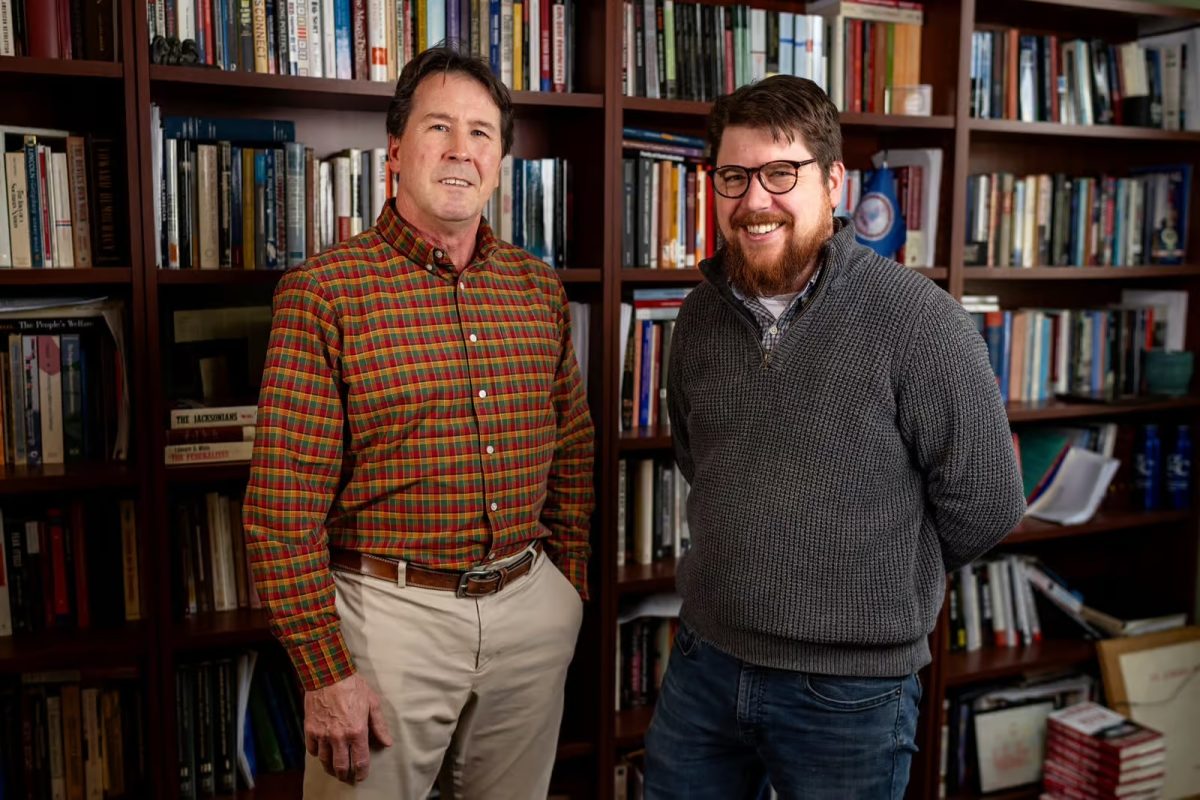A modest proposal
February 27, 1998
It’s a painful experience for Americans to watch the meter when we’re pumping our gas. The pennies are just a blur, and the dimes go by almost as quickly.
I’ve often worried about the strain this puts on our economy. We send billions of dollars to the Middle East each year because our enterprises consume more oil than we can possibly supply. I once thought the United States should solve this problem by building efficient mass transit systems or developing solar and electric vehicles, but a friend from an oil company has helped me see I was mistaken.
Companies like his have spent a lot of money and time to make our government understand the wisdom of relying on oil as a basic fuel. This, however, makes Middle East peace vital to our interests and puts our country directly at odds with Saddam Hussein. If he does not honor Monday’s agreement with Kofi Annan, we will probably launch air strikes and, inevitably, some will protest this as a useless and unfair waste of human life.
I agree. But the situation presents no easy answers. It demands that Iraqis either join Saddam Hussein or live off international charity. I think all Americans would like to see the Iraqis become valuable assets to a growing international economy. The challenge lies in finding a way for Iraq’s unskilled workforce to make a real contribution, and my proposal is designed to address this concern.
My friend has helped me understand how oil is created. When animals in the ocean die, the carbon in their bodies is converted to petroleum over hundreds of millions of years, assuming the temperature and pressure are correct. Since the process takes so long, we will deplete our oil supply much faster than it can be replaced by the earth’s biomass.
By my guess, there are at least five million individuals in Iraq who have endured substantial suffering because of the sanctions on their country. Since the United States is a major force behind the sanctions, I think it’s our responsibility to end the suffering.
I propose we use our military to drive the impoverished refugees down across the plain of Mesopotamia and into the Persian Gulf where they will all drown.
If conditions are carefully monitored during the next several hundred million years, this could be the crucial first step in a program that will ensure Americans always have a cheap source of gasoline.
Assuming one human being weighs 115 pounds and consists of 15 percent carbon by mass, five million humans would yield 113 million pounds of carbon to be converted into oil. If we can use 20 percent of this as gasoline to fuel our vehicles, it would amount to some 3.2 million gallons and allow 30 thousand American families to take their minivans and RVs on vacation this summer.
I understand this is a somewhat unexpected idea and I already hear the cries of horror and protest. And I’ve anticipated the objection. To herd the sick and starving Iraqis across hundreds of miles of desert will require US ground troops. I realize this. The children and elderly will need to be prodded so they don’t fall behind. Inevitably, some will resist, and the United States may suffer casualties. Most of us would agree this is unacceptable because American life is worth inherently more than Iraqi life.
It’s true — the average American adds approximately $21,000 of value to the world’s economy each year, while an Iraqi adds less than $3,000. When we factor in the investment our military has made in its soldiers, we can see that an American life is over seven times more valuable than an Iraqi life, and it simply doesn’t make sense to risk our troops.
However, if we can stop looking at the Iraqis as humans and begin to see them as oil, the situation becomes much simpler. Now a $21,000 American soldier doesn’t seem like such a bad investment. And what are the alternatives? If we limit ourselves to air strikes, the dead will at best be converted to coal over the years and coal is an inferior fuel.
There is also a political side to my argument. Saddam’s use of his people as hostages has allowed him to defy U.N. resolutions, and this has seriously undermined the U.N.’s credibility. By enacting the proposal I have suggested, we will eliminate the leverage Saddam uses to defy the U.N. and restore some much needed credibility to an institution whose own members mock by refusing to pay their dues.
At a time when most other nations refuse to take action, we have an opportunity to represent the international community in a capacity we have neglected since the ’60s.
James Long is a senior in biochemistry from Ames.






